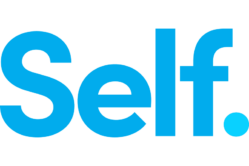When looking for a home, one of the decisions you’ll have to make is the type of mortgage you want. You might think that your biggest decision will be choosing between a 15-year and 30-year mortgage – but a wide variety of mortgage options are available. The good news is you can usually find VA loans to cover most mortgage options.
Table of Contents
How Does A Mortgage Work?
Home loans let you borrow money to purchase a property. You can apply for a mortgage with most major banks, credit unions, and mortgage companies.
When you take out a mortgage to purchase a home, you ultimately use the home as collateral. This provides security to your lender because it allows them to foreclose on your home if you fall behind on your payments.
When you’re ready to start house shopping, the first step is getting pre-approved for a home loan. This step also lets you know how much a lender will let you borrow or if your loan may require a co-signer.
However, you don’t have to borrow every penny a lender qualifies you for. Always keep in mind you know your budget better than anyone. Just because the bank thinks you can afford a $350,000 house doesn’t mean you can.
There are advantages to owning a home and building a stronger credit history. Paying off your mortgage can also be a great step toward building a larger investment portfolio. Several methods to pay off your mortgage earlier could allow you to free up additional income for investing.
Understanding the Language of Home Loans
Buying a home requires you to learn new lingo. If you aren’t familiar with these common terms or don’t know what they mean, it can make the process more difficult than it already is.
Plus, this is your money on the line. Any mistakes you make could cost you a lot of cash.
Here are the main mortgage terms you need to know and understand:
- Annual Percentage Rate – Representing the true cost of borrowing money to buy a home, the annual percentage rate or APR is the interest you’ll pay. The lower the rate, the less interest you’ll pay throughout the loan. Side note – many people think about refinancing their mortgage to lower their rate, but this is not always the best idea.
- Earnest Money – Once you find a home you like, giving earnest money shows you’re serious about wanting to buy it. Usually, earnest money works out to around 1% to 2% of the home’s purchase price, but it can be much more. This money goes into escrow until it is applied toward closing costs or your home’s down payment.
- Title Insurance – Title insurance makes sure there aren’t any unpaid taxes, pending legal action, errors, fraud, or undisclosed heirs that might have a claim to the property.
- Closing Costs – The money you need to bring to close your home loan is known as closing costs. These fees average around $7,000 in the U.S. and can include title insurance, home inspection fees, appraisal fees, commissions for real estate agents, transfer taxes, and recording fees.
- Underwriting – Underwriting is the process lenders use to approve or deny your mortgage. During this process, they review your loan application, credit history, and home value.
- Escrow – Your escrow account is a neutral third party responsible for handling money exchanges between the buyer and seller. Money that’s put toward the purchase of the home before closing, such as earnest money, is put into escrow.
- Mortgage Insurance – To protect the lender against financial loss, you’ll usually pay private mortgage insurance if you don’t put at least 20% down when buying your home. Once you build up enough equity, you may be able to have PMI removed from your loan.
Types of Home Loan Programs
Conventional Home Loans
Private lenders issue conventional home loans. Unlike FHA, VA, and USDA mortgages, conventional loans are not insured by the federal government. They have more rigid qualification requirements, but they can usually save money over an FHA mortgage. Conforming conventional loans have a few rules set by the government. But non-conforming loans aren’t as regulated, making it even more important to shop and compare offers from different lenders.

Check your VA Home Loan eligibility and get personalized rates. Answer a few questions and we'll connect you with a trusted VA lender to answer any questions you have about the VA loan program.
Pros
- Borrowers can qualify with a down payment of 3% to 20%.
- There’s no requirement for it to be your primary residence, making it a good option for any property purchase.
Cons
- Conventional loans typically require a higher down payment than other types of mortgages, which could disqualify some potential borrowers.
- Paying private mortgage insurance is necessary without putting at least 20% down, and that can be costly.
People with a decent credit score, stable income, and who will own the home for most of the loan term can benefit. Whether you’re planning to buy a house to live in, a second home, or investment property, a conventional mortgage can help you get the job done.
VA Loans
Active-duty service members, veterans, and their families have an awesome resource for buying a house. If you qualify, getting a VA loan without a down payment and no mortgage insurance can become your reality. These loans have service requirements that are easy to meet. Generally, 90 consecutive days of service during wartime, 181 days during times of peace, or more than six years of service in the National Guard or Reserves is enough. Before applying to a lender, you’ll need a Certificate of Eligibility from the VA.
Pros
- No down payment requirement makes it a piece of cake to jump into homeownership.
- In addition, not paying mortgage insurance could save you thousands of dollars.
Cons
- VA loans are only available to veterans.
- The VA funding fee can add to the cost of your loan.
- Getting a no-money-down mortgage may make it take longer to build equity.
- There are some limitations on which types of properties you can buy using a VA Loan, making a conventional mortgage a better option for some types of home purchases.
Veterans looking to purchase their primary residence and who are committed to living in one place for several years are excellent candidates for a VA mortgage.
FHA Loan
As a government-backed loan, the Federal Housing Administration (FHA) helps more than a million people become homeowners each year. An FHA mortgage features a lower down payment and more lenient credit requirements.
Pros
- FHA loans are available to borrowers with FICO scores as low as 500, but you’ll need a 10% down payment if the score is less than 579.
- If your score is 580 or higher, you only need to make a 3.5% down payment.
- This makes it easier to get financing if you’ve had trouble getting other types of mortgages.
Cons
- The FHA limits how much you can borrow based on where you live in the U.S. For a one-unit home, you can’t borrow more than $314,827 in a low-cost area or $726,525 in a high-cost area.
- There are some special exceptions, although it depends on where you want to buy a house.
With lower down payment requirements, FHA loans are popular with first-time buyers who might not have much money saved up. They’re also good for people with a less-than-stellar credit history who might not qualify for a conventional home mortgage.
USDA Loans
Like FHA and VA mortgages, the U.S. Department of Agriculture (USDA) offers a program to provide loans to lower-income people. The home you want to purchase must be in an eligible area to qualify. If it is and you meet income qualifications, it’s an excellent option since there’s no down payment requirement.
Pros
- Buying a house with zero down is an amazing opportunity if you’re low on savings.
- USDA loans come with lower income requirements than other types of mortgages, and you’ll pay less for mortgage insurance.
Cons
- Lenders prefer a credit score of at least 640, though alternative credit sources can help you qualify if you don’t meet those requirements.
- Establishing equity in your home takes tremendous time without a down payment.
This could be an excellent option if you have a low or moderate income and want to purchase a home in a qualifying rural area. A USDA loan can also help if you don’t have a lot in your savings account or your credit score doesn’t hit the mark.
Reverse Mortgages
To be eligible for a reverse mortgage, you must be at least 62 years of age. Reverse mortgages may be an answer for a senior citizen who finds that he/she hasn’t saved enough for retirement. The lender will want to see that you have substantial equity in your home before agreeing to a reverse mortgage. Beware, there are good and bad aspects of reverse mortgages.
Pros
- Unlike a traditional loan, you are not required to pay back the amount of the loan in monthly installments. Instead, the loan plus interest will be due when you sell the house or at the end of the agreed-upon loan period.
Cons
- The reverse mortgage may use up all of the equity you have in your home, meaning that there will be nothing left of your equity after the sale of your home.
Mortgage Rate Types – Fixed, Variable, & More
There are many different types of mortgages, from a fixed-rate, to interest-only, to adjustable-rate, and balloon mortgages. Here are some advantages and disadvantages of each type of mortgage so you can make a more informed choice for your particular needs.
Fixed-Rate Mortgage (FRM)
The interest rate on a fixed-rate mortgage remains the same for the entire term of the loan. The amount of your monthly payment with an FRM is calculated using the interest rate and its compounding frequency, the term of the mortgage (15 years, 30 years, etc.), and the total amount borrowed.
Pros: Since it locks in your interest rate, there’s no need to worry about fluctuating rates affecting your payment amount. This makes budgeting your expenses from month to month easier because your mortgage payment remains the same.
The only time your fixed-rate mortgage payment fluctuates is if your property taxes and property insurance are handled in escrow, and those amounts are adjusted.
Cons: The interest you pay with a fixed-rate loan is higher. With more money going toward interest fees, it can take longer to build equity in your home. And if the market plummets, you could get stuck paying a higher interest than the current going rate.
If you like to plan and have more control over your finances, the stability of paying a fixed-rate mortgage might be a perfect fit. Fixed-rate mortgages are also good for homeowners who plan to remain there for most of the loan period since equity can take a while to grow.
Variable Rate, or Adjustable-Rate Mortgage (ARM)
Interest rates change with adjustable-rate mortgages based on changes in constant-maturity Treasury securities, the London Interbank Offered Rate, and the Cost of Funds Index. Because the interest rate changes over time, the amount you pay on an ARM can also change.
An adjustable-rate mortgage helps share some of the rate’s risks with the lender. If the rates decrease, you’ll be able to take advantage of the lower interest rate, whereas, with a fixed-rate mortgage, unless you refinance, you’re stuck with the higher rate you had when you got the loan.
Pros: Paying lower interest fees can save you money each month, which can add up to significant savings over the life of the loan. Building equity becomes easier with a low interest rate, too.
Cons: Of course, the disadvantage is if the interest rates increase, you could end up paying much more than you would have if you locked in the rate with a fixed-rate mortgage before the rates increased. If the market sees periods of increasing interest, your payment could skyrocket. The higher cost could cause you to struggle, leading you to default.
With lower interest helping to increase equity, variable-rate home loans are great if you aren’t planning to live there for more than a few years.
Interest-Only Mortgage
For a specific period of time, borrowers pay just the interest owed on interest-only mortgages. During that period of time, the principal balance doesn’t change. The loan is usually set up with five or ten years of making interest-only payments, followed by amortization of the balance over the remaining life of the loan.
The advantage of an interest-only mortgage is that the payments are substantially lower for the five or ten years that you pay only interest. It’s ideal for the individual who expects a salary increase when the mortgage starts charging principal payments. The disadvantage is you don’t make a dent in the principal for the first few years of the loan.
Balloon Mortgage
Mortgages that are not completely amortized over the term of the mortgage end with a larger balance (the balloon payment) due upon maturity. Balloon mortgages are often used for commercial real estate and may feature a fixed or floating interest rate.
A balloon mortgage might make sense for people or businesses who plan to sell the property before they reach the large balloon payment; or for those who know they’ll have the money to pay the large payment when it comes due.
The problem with balloon mortgages is that many people reach the end of the term and don’t have the financial resources available to pay for the large balloon payment. Sometimes a “two-step” or “reset” option is used with balloon mortgages, which means the mortgage resets before the balloon payment is due using the current market rates to amortize the remaining balance.
Which Type of Mortgage is Best?
Each of these types of mortgages offers advantages and disadvantages, but in my opinion, the best option is the plain-vanilla, no-thrills, fixed-rate mortgage.



About the comments on this site:
These responses are not provided or commissioned by the bank advertiser. Responses have not been reviewed, approved or otherwise endorsed by the bank advertiser. It is not the bank advertiser’s responsibility to ensure all posts and/or questions are answered.